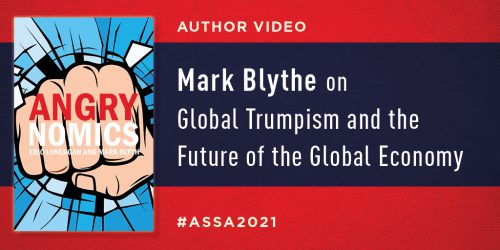Kenneth Posner and Edward Hess on Goldman Sachs and Financial Reform
In separate articles, Kenneth Posner and Edward Hess, two authors recently published by Columbia Business School Publishing, applied the arguments of their books to some of the most pressing and controversial issues in finance and business.
First up is Kenneth Posner, author of Stalking the Black Swan: Research and Decision Making in a World of Extreme Volatility, who contributed an op-ed to the Washington Post Web site aptly titled Goldman meets its Black Swan. In addressing the recent SEC suit against Goldman Sachs, Posner argues that ultimately the focus will not be on whether or not the charges have merit but
whether Goldman’s business model is viable in the post-crisis political environment. After nearly failing during the crisis, Goldman now operates as a bank holding company, thanks to the Federal Reserve.
He goes on to argue that Goldman Sachs’s status as both an investment bank and a proprietary desk must not survive if the Volcker rule is adopted by Congress. Moreover, the political situation and recent PR gaffes by the firm have not helped matters:
In Goldman’s eyes, the firm is the world’s premier financial institution, employing the sharpest minds, generating the strongest returns, operating with the highest ethical standards – doing what CEO Blankfein sincerely describes as “God’s work.” The SEC lawsuit is inconsistent with that self-image. So is popular opinion. Management’s combative posture reveals its frustration.
One can imagine a wide range of possible outcomes for Goldman. The more positive scenarios involve continued growth and profitability. In some of the less favorable scenarios, the firm is forced to restructure, perhaps like Standard Oil and JP Morgan & Co. If it cannot devise a new strategy, the less favorable scenarios become more likely.
Meanwhile, over at Huffington Post, Edward Hess, author of Smart Growth: Building an Enduring Business by Managing the Risks of Growth, contends that what’s missing from the debate on financial regulation reform is, well, real reform.
Hess suggests that while the debate about financial reform generates a lot of heat it is not shining much light on some of the core issues. For Hess, the continued emphasis on growth or the appearance of growth forces businesses to focus on quarterly statements rather than real growth.
He concludes by offering a series of recommendations “that can refocus corporate America on actions that can spark real growth”:
* First, public companies should be required by regulators, listing exchanges and their boards of directors to disclose with complete transparency their non-authentic earnings.
* Second, the short-term renting of stock should be discouraged by increasing the holding period for long-term capital gains to three years and imposing fees on nontaxable institutional short-term stock renters, as well.
* Third, executive compensation should be more properly aligned with the long-term creation of real growth.
* Finally, public companies should be made to disclose their short-term and long-term growth portfolios, so long-term investors can better evaluate and allocate their capital to smart, rather than apparent, growth.



